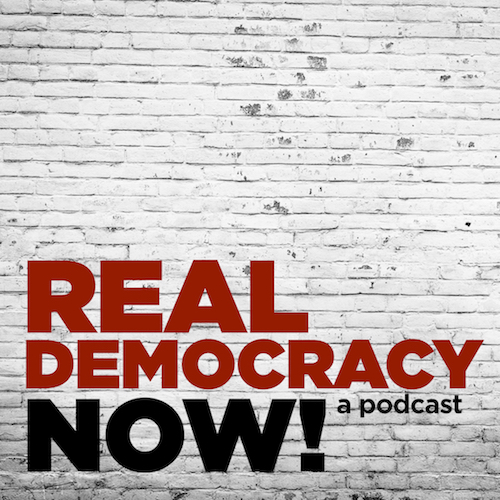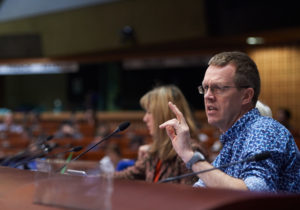I have asked all of my guests what they think is the essence of a real democracy. In this episode I showcase their responses.
Professor Carson sees the essence of a real democracy as being about self government and trust.
Luca Belgiorno-Nettis, founder of the newDemocracy Foundation, agreed that people should be able to govern themselves.
Professor Janette Hartz-Karp from Curtin University in Western Australia highlighted the need to consider the common good co-designed by the people.
Peter MacLeod from MASS LBP in Canada talked about giving citizens a role between elections with more opportunities for citizens to be involved.
Associate Professor Helene Landemore from Yale University democracy talked about inclusiveness and equality, where everyone has an equal chance of being heard in decision-making.
Iain Walker, the Executive Director of the newDemocracy Foundation, doesn’t believe that democracy equals the vote, rather it should be about acting on the informed will of the people.
Professor Graham Smith for Westminster University sees citizen participation at the heart of democracy with citizens able to participate in critical decisions which affect their lives.
Emily Jenke from DemocracyCo, a facilitation company in South Australia, its about active citizenship.
Titus Alexander from Democracy Matter in the UK believes the public should have an equal say in public decisions.
Associate Professor Caroline Lee from Lafayette University identifies social, economic and political equality being more balanced as important in a real democracy.
Jay Weatherill the Premier of South Australia, like Janette, sees citizens acting in the community interest as part of a real democracy.
And Professor Gerry Stoker from Southamption University proposes a real democracy would be one that allows people to participate when and how they want to, what he calls ‘politics fit for amateurs’.
I’d love to know what you think is the essence of a real democracy. Please share you views with the Real Democracy Now! community on our Facebook page, by Twitter or on the website. Or you can send a voice memo to essence@realdemocracynow.com.au I’ll share some of your perspectives in later episodes.

